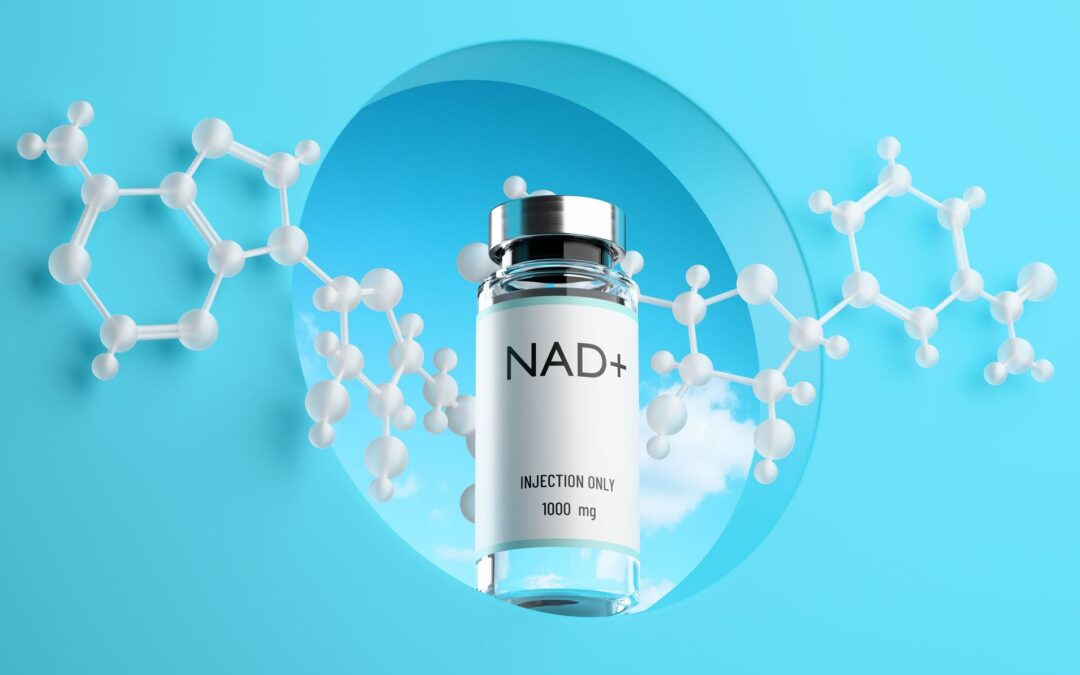If you’ve been keeping an eye on the wellness world lately, you’ve probably noticed a new buzzword popping up everywhere: NAD+. From IV drips at high-end med spas to celebrity biohacking routines, it’s quickly become one of the most talked-about treatments for boosting energy, sharpening focus, and promoting healthy aging.
But what exactly is NAD+, and why has it captured so much attention? More importantly, what do providers need to know before offering it?
What Is NAD+?
NAD+ stands for nicotinamide adenine dinucleotide, a coenzyme found in every single cell in your body. It’s essential for turning the food you eat into the energy your cells need to function. NAD+ also helps repair DNA, supports cellular defense against stress, and plays a role in overall cellular health.
As we age, NAD+ levels naturally decline, which has sparked interest in ways to restore it. The idea is simple: if you can replenish NAD+, you may be able to support your body’s natural repair processes and maintain higher energy levels. That’s the theory, and it’s driving much of the current excitement.
Why the Hype?
The interest in NAD+ is fueled by both science and celebrity culture. Early studies suggest it may support mitochondrial health, aid in cellular repair, and have potential brain-health benefits. Combine that with the anti-aging and performance-optimization trends dominating the wellness industry, and you have a perfect storm of curiosity and demand.
Add a few high-profile endorsements from public figures who swear by NAD+ infusions, and it’s no surprise the treatment has made its way into med spas, IV hydration businesses, and wellness clinics across the US. While the research is promising, it’s important to note that human studies are still limited, and many of the claims you hear remain unproven in clinical settings.
How It’s Offered
NAD+ is most commonly delivered through IV drips or intramuscular injections, typically under the supervision of licensed medical professionals. Some providers also offer oral supplements, though these may have different absorption rates and effects. IV and injection formats are marketed as the most direct way to deliver NAD+ into the bloodstream, but they also come with specific medical and legal responsibilities.
The Legal Side
For providers, NAD+ isn’t just a wellness trend, it’s a regulated medical service. That means there are important compliance considerations before adding it to your menu.
First, NAD+ is not approved by the Food & Drug Administration to diagnose, treat, cure, or prevent any disease. This means you may not market it as a medical cure or make unverified claims like “reverses aging” or “guarantees mental clarity.” Such statements can draw attention from both the FDA and the Federal Trade Commission, which closely monitors wellness advertising.
Second, scope of practice laws vary from state to state. In most cases, only licensed medical professionals may prescribe and administer NAD+ injections or drips, and some states require physician oversight or specific IV therapy protocols.
Finally, because NAD+ for wellness purposes is considered an “off-label” use, it’s essential to provide clear information to and gain informed consent from clients. They should understand potential risks, the experimental nature of certain uses, and the fact that benefits may vary.
The Bottom Line
NAD+ is an exciting area of research and a fast-growing service in the wellness industry. For clients, it offers the allure of cutting-edge science and the “promise” of better energy and cellular health. For providers, it can seem like a valuable addition if it’s offered safely, legally, and with full transparency.
At Lengea Law, we help medical spas, IV therapy businesses, and wellness providers navigate the complex legal and regulatory landscape around services like NAD+. From setting up compliant protocols to ensuring your marketing is both effective and legally sound, we make sure your business can offer innovative treatments without unnecessary risk.
Disclaimer: This article is for informational purposes only and does not constitute legal advice. Always consult with a qualified attorney about your specific situation.


